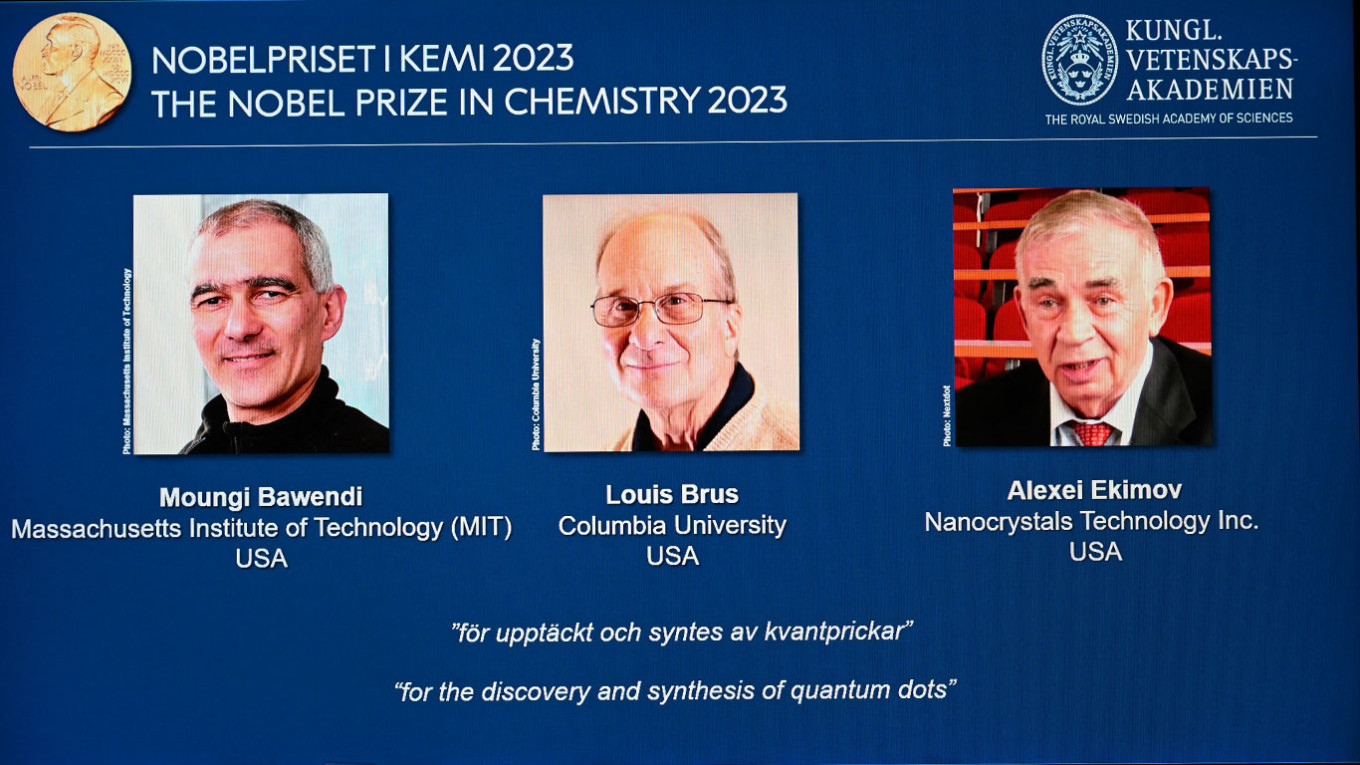
Quantum dot pioneers win Nobel Prize
Submitted by:
Andrew Warmington
The Royal Swedish Academy of Sciences has awarded the Nobel Prize in Chemistry 2023 to three US-based scientists for the discovery and synthesis of quantum dots. According to the academy they “planted an important seed for nanotechnology” by “producing particles so small that their properties are determined by quantum phenomena”.
“Physicists had long known that in theory size-dependent quantum effects could arise in nanoparticles, but at that time it was almost impossible to sculpt in nanodimensions. Therefore, few people believed that this knowledge would be put to practical use,” the academy noted.
This changed in the early 1980s when Alexei I. Ekimov of Nanocrystals Technology succeeded in creating size-dependent quantum effects in coloured glass using nanoparticles of copper chloride. Later, Louis E. Brus of Columbia University proved size-dependent quantum effects in particles floating freely in a fluid.
In 1993, Moungi G. Bawendi of Massachusetts Institute of Technology revolutionised the chemical production of quantum dots, resulting in the almost perfect particles needed for practical use. Common applications now include the illumination of computer monitors and television screens based on QLED technology, adding nuance to the light of some LED lamps, and mapping biological tissue.
“Quantum dots are thus bringing the greatest benefit to humankind. Researchers believe that in the future they could contribute to flexible electronics, tiny sensors, thinner solar cells and encrypted quantum communication – so we have just started exploring the potential of these tiny particles,” the academy said.
